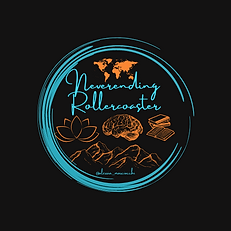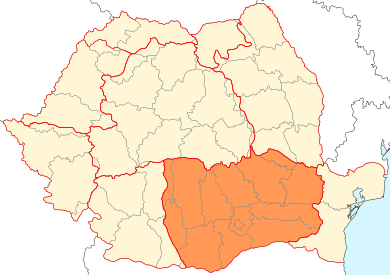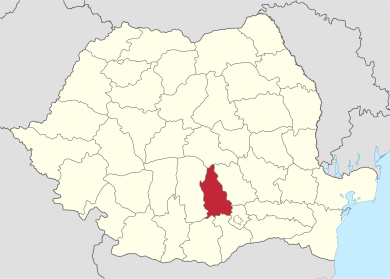Feminine power is a shadow that lies behind the throne
- Alessia Masciocchi
- Jun 13, 2024
- 6 min read
Updated: Mar 23
Good day, 13th of June, lovelies!
What is the 13th of the month if not a villainous character in history? And here we are, about to discover something about a woman who, with her influence, destroyed her own country. She wasn't a Head of State, however (here the phrase "but with knobs on" reigns supreme) as the saying goes: "Behind every great man there is a great woman."
Elena Ceaușescu
“Dreptatea e cum fac domnii” transcribed in IPA /ˈdɾeptate̯a e kum fak ˈdomnij/
“The justice is what the rulers do,” reads a Romanian proverb.
This phrase seems to perfectly reflect the life of Elena Ceaușescu, a figure who exerted enormous influence over Romania until her dramatic end on Christmas Day 1989. Elena and her husband Nicolae Ceaușescu were executed in Târgoviște* or Tîrgoviște* [tɨrˈɡoviʃte] * after a summary military trial, marking the end of one of the most oppressive dictatorships in modern history.
Woman of humble origins
Elena Ceaușescu was born as Lenuta Petrescu (/leˈnuta peˈtresku/) on January 7, 1916, the daughter of peasants in the Romanian region of Muntenia, in the village of Petreşti, Dâmboviţa.

She never completed elementary school and moved to Bucharest
(/buˈkarest/), where she supported herself with menial jobs. Despite her humble origins, she developed an early interest in politics, joining the “League of Communist Youth” (Liga Tineretului Comunist
/ˈliɡa tineretuˈlui koˈmunist/) and in 1939 met Nicolae Ceaușescu, whom she would marry in 1946.
Education forger

Despite never completing elementary education, Elena wanted to appear as a strong and intelligent woman. Through various subterfuges, she managed to obtain a degree in chemistry and a doctorate, knowing they were fake. No one dared to question the authenticity of her titles, and she received honorary degrees in several countries she visited. Additionally, Romanian researchers were forced to yield the results of their research under her name.
Thirst for power
After the death of Gheorghe Gheorghiu-Dej (/ˈɡe̯orɡe ɡe̯orˈɡeju ˈdeʒ/) in 1965, Nicolae became the head of the Romanian Communist Party (Partidul Comunist Român /parˈtidul koˈmunist roˈmɨn/) and later the general secretary. Meanwhile, Elena climbed the party ranks: she was a member of the Bucharest municipal committee in 1968, the central committee in 1972, and the executive committee in 1973.
The Regime
During the 1960s, Romania under the Ceaușescus broke away from the Warsaw Pact, maintaining an independent foreign policy and condemning the invasion of Czechoslovakia in 1968. However, domestically, the country was governed with an iron fist. The secret police, the Securitate (/sekuˈɾitate/), suppressed any dissent.
Although the constitution guaranteed freedom of speech, Article 28 specified: "Freedom of speech, press, assembly, and demonstration is guaranteed to the citizens of the SSR" (Socialist Republic of Romania - Republica Socialistă România /reˈpublika soʃiˈliste roˈmɨni.a/). However, Article 29 clarified that, "Freedom of speech, press, assembly, and demonstration shall not be employed for purposes contrary to the socialist system and the interests of the workers."
Behind Nicolae, Elena emerged as an even more powerful figure. Laws were enacted that banned abortion and contraceptives, made divorce difficult, and increased taxes for childless couples or those with fewer than three children. The country's agricultural and industrial products were exported, leaving the population in extreme poverty.
"Those who rise too high, sooner or later fall, inevitably."
In the 1970s, Romania accumulated huge debts with Western credit institutions, attempting to transform from an agrarian state to an urban society. This transformation led to the destruction of rural villages and the creation of new urban settlements. Between the 1970s and 1980s, the country faced famine and a shortage of essential goods.

A tale circulating during that time captured the situation well:
"A Romanian official dies and goes to hell. Entering Satan's palace, he sees two large identical halls, named East and West. Terrified, the man asks the devil accompanying him: 'What's the difference between the two? Which one should I choose?' 'Ah, we offer the same services in both. On Monday we boil you in oil, on Tuesday we roast you on a spit, on Wednesday we treat you with fire and sulphur, on Thursday we bake you in an oven, on Friday we fry you in a pan.' 'But why is the East so crowded and the West empty?' 'Well, in the Eastern hell, there's always a shortage of oil, the spits don't turn, and we're constantly short of sulphur.'"
The crisis peaked with the opening of numerous orphanages, where food shortages and inadequate conditions led to diseases like AIDS, spread through infected blood transfusions. The disease was considered a "disease of decadent Westerners" rather than a consequence of transfusions, and even blood tests were banned.
A true "First Lady"”
While the people suffered, the Ceaușescus lived in luxury. Elena was promoted as the "first lady of the country," and her name had to appear alongside Nicolae's in every official publication. By 1989, 28 close relatives of the Ceaușescus’ held high positions in the PCR and the army.
Finally, some protests!
The first protests erupted in Timișoara (/timiˈʃo̯ara/) on December 16, 1989, in defence of a dissident Hungarian priest. The protest was violently suppressed, but discontent continued to grow.
On December 20, 50,000 people took to the streets in Timișoara. In response, Elena ordered a mass rally in Republic Square (Piața Republicii /ˈpjat͡sa reˈpubliki/), now Revolution Square (Piața Revoluției /ˈpjat͡sa revoˈlut͡sjei/), in Bucharest on December 21.
On December 21, 1989, 80,000 people gathered to hear Nicolae Ceaușescu. The crowd began chanting "Jos dictatorii!" (/ʒos diktaˈtorij/ - "Down with the dictators!") and "Timișoara, Timișoara". The humiliation of the state leaders was broadcast live on television, and the army sided with the people.
La The end
On December 22, the Ceaușescus attempted to flee by helicopter but were captured 40 km north of Bucharest. They were tried by a military tribunal composed of three civilians, five judges, two prosecuting attorneys, two defence attorneys, and a television operator. Accused of genocide (60,000 people), armed attack against the population and state power, and destruction of buildings and state institutions, they were sentenced to death.
The prosecutor, Dan Voinea (/dan voˈine̯a/), stated: "I am against the death penalty because I consider it inhumane. But these are not normal people (...) Romanians would not understand why the two Ceaușescus are not executed after all the misery (...)."
After the trial, the couple was taken to a courtyard through a long corridor. Immobilized at the sight of the soldiers, they realized their fate only then. Nicolae was shot first, followed by Elena. It was December 25, 1989.
The video does not correspond to the actual execution but is a plausible representation.
Burial
Elena and Nicolae Ceaușescu were buried in Ghencea Cemetery (/ˈɡeŋt͡ʃe̯a/) in Bucharest, in separate plots, in an area prohibited to visitors.
Honours and the people's suffering
Elena Ceaușescu received several honours during her life, including the title of Hero of Romania in 1981, and numerous international recognitions. However, the memory of her life is inseparably linked to the suffering and misery inflicted on the Romanian people.
In conclusion, Elena Ceaușescu remains an emblematic figure of absolute power and its terrible consequences. Her story serves as a warning of how unrestrained ambition and lack of scruples can lead to the ruin of an entire nation.
*
Before an orthographic reform in 1904, the central high vowel /ɨ/ (https://www.ipachart.com/#:~:text=y,%C9%A8) was represented by 5 letters all with a circumflex accent: â, ê, î, ô (rare), û.
During the communist regime, from 1953 to 1993, only î was imposed in spelling. It was later established that â would remain only in the name "România".
This reform was abolished and since 1993 only -â-, î remains.
I hope you enjoyed this article! Please leave a like and share. If you want to propose a character, then, be my guest!
Fonti:
A former colleague of mine from the first year of the first university, who worked her ass off in the national archives (thank you very much, beauty!)
“I personaggi più malvagi della storia” – S. Klein, M. Twiss
Transcript of the closed trial (…)
Wikipedia





Comentários